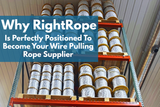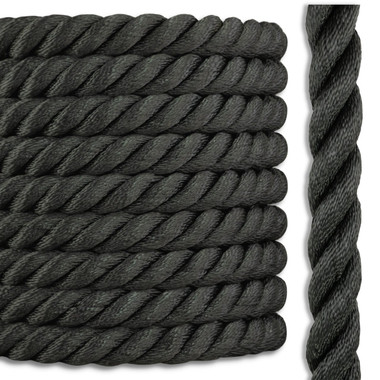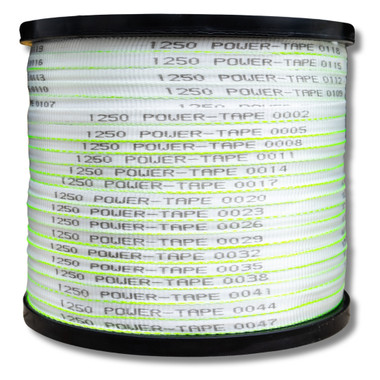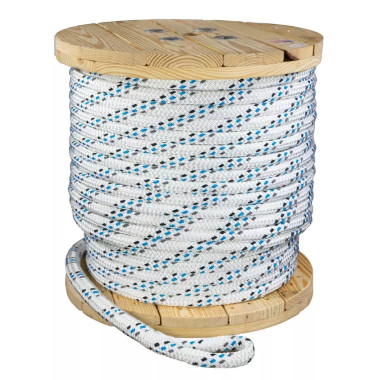Polyester vs Nylon Rope, Which One For Which Application?
Estimated 0 min read
If you’ve ever stood in front of a rack of rope and thought, “Polyester, nylon… what’s the actual difference?” you’re not alone. These two ropes look almost identical, they’re both synthetic, both strong, both used for everything from boating to flagpoles… and yet if you use the wrong one for the wrong job, you’ll find out real quick why the difference matters.
At RightRope.com, we sell a full range of nylon ropes and polyester ropes, including solid braid, double braid, 3-strand, and 8-strand and more, so we get this question almost daily: Which rope should I use, polyester or nylon?
The short version?
- Nylon = Strength + Stretch + Shock Absorption
- Polyester = Strength + Low Stretch + Long-Term Outdoor Stability
But let’s dig deeper, because once you understand what each rope actually does, you’ll never wonder again.
Quick Comparison: Polyester vs Nylon Rope
|
Feature |
Nylon Rope |
Polyester Rope |
|
Stretch |
High stretch (up to 30%) |
Low stretch |
|
Shock Absorption |
Excellent (best for dynamic loads) |
Minimal |
|
UV Resistance |
Good |
Better (best for long-term sunlight exposure) |
|
Strength |
Very strong |
Also very strong (slightly less) |
|
Abrasion Resistance |
Good |
Excellent |
|
Best Use Case |
Dock lines, anchor lines, towing, recovery |
Flagpoles, pulley systems, winch lines, pulling, rigging |
|
Check Out: |
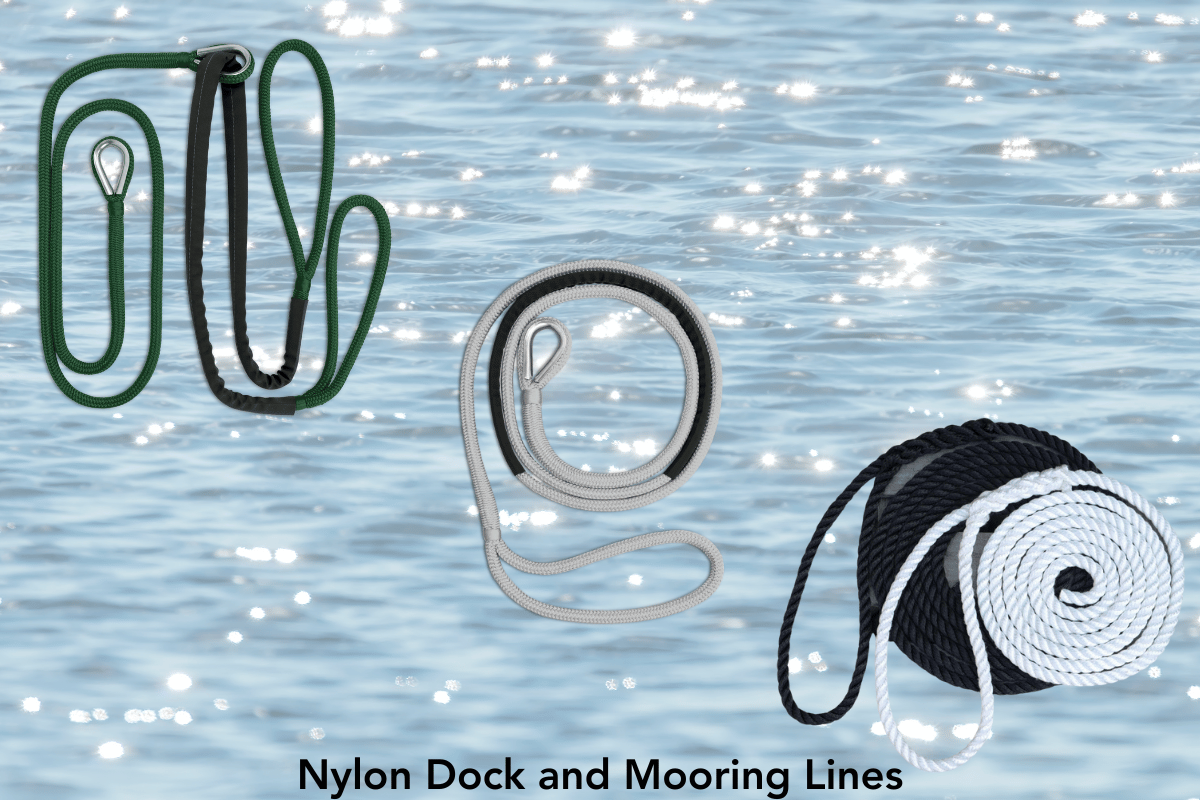
When to Choose Nylon Rope
Nylon rope is your go-to when you need strength and stretch. It’s the only synthetic rope fiber that gives you serious elasticity under load. That stretch is what protects your equipment from shock loads, like when a boat jerks against a dock cleat or when a vehicle tow strap snaps tight.
Best Nylon Rope Applications:
- Dock Lines & Mooring Lines — absorbs wave and wind shock.
- Anchor Lines — takes the jolt when the anchor sets.
- Towing and Recovery — gives you a little “give” instead of ripping hardware apart.
- General Dynamic Loads — anything where sudden force is involved.
When to Choose Polyester Rope
If you need consistent length, low stretch, and long-term durability in the sun, go with polyester. It’s just as strong as nylon but doesn’t stretch nearly as much, which makes it the better choice for tension pulls and fixed-length applications. Our popular Wire Pulling Ropes are a double braid polyester, the best possible construction for reliability and constant tension.
Best Polyester Rope Applications:
- Flagpole Halyards — low stretch keeps your flag flying right.
- Clotheslines & Outdoor Lines — won’t sag like nylon.
- Winch Lines & Cable Pulling — maintains tension, lower stretch.
- Rigging & Tree Work — only when static load is involved, ie positive rigging. (Combo ropes are also popular for this)
- Permanent Outdoor Installations — holds up better under UV long-term.
Solid Braid Rope: Polyester vs Nylon
Solid braid ropes are flexible and tie and untie easily. The main drawback of a solid braid rope is that it can’t be spliced. A lot of customers pick up a Solid Braid Nylon Rope in one hand and a Solid Braid Polyester Rope in the other and ask, “Which is which?”
They look and feel almost identical, but here’s the breakdown:
- Solid Braid Nylon Rope — More stretch, softer feel, great for tie-downs and pulleys where shock load is expected.
- Solid Braid Polyester Rope — Holds shape under tension, won’t stretch, great for flagpoles, clotheslines, and long-term outdoor use.
If you want your rope to stay tight and not sag, go polyester.
If you want your rope to take shock and tie easily, go nylon.
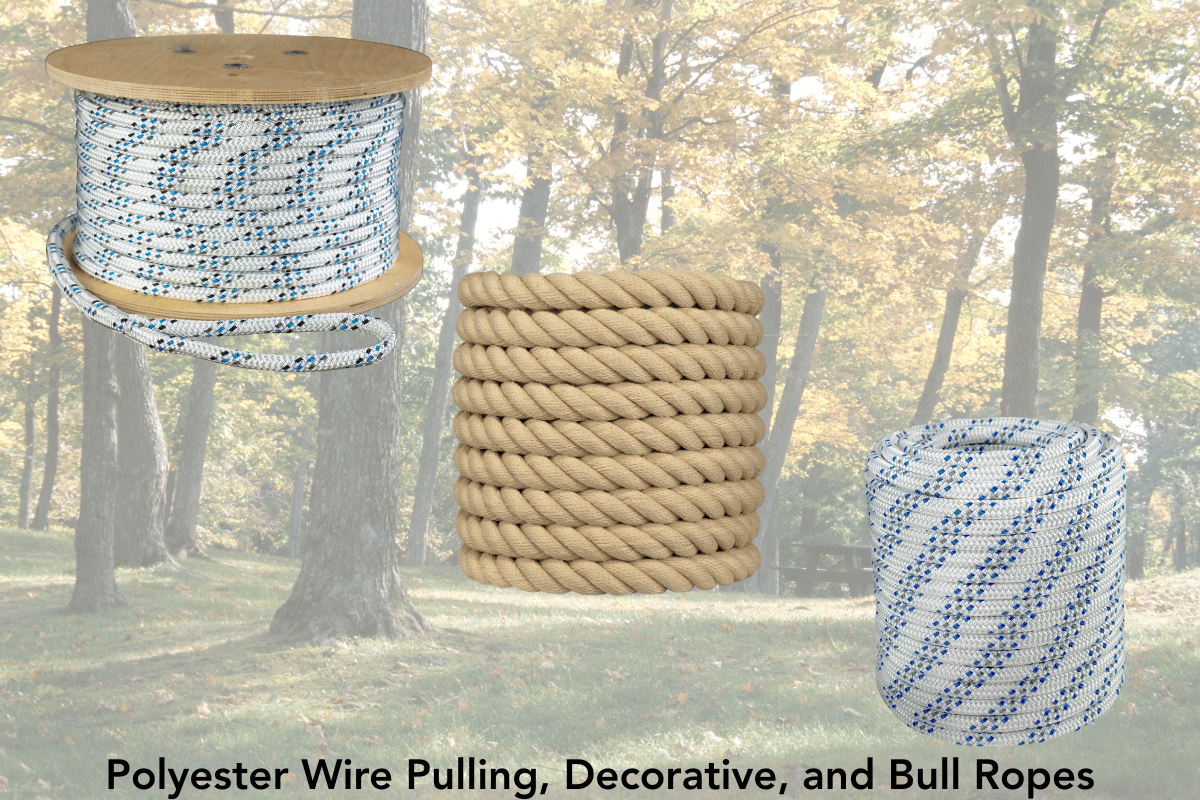
Double Braid Rope: Nylon vs Polyester in Heavy Duty Work
Double braid is generally the strongest construction of rope, and it’s usually spliceable too. When it comes to double braid rope, both nylon and polyester have their place but they do different jobs best.
Double Braid Nylon Rope
- Excellent for dock lines and anchor lines
- Stretches smoothly under load
- Comfortable in the hand and easy to coil
Double Braid Polyester Rope
- Designed for pulling, rigging, and winching
- Low stretch keeps control in tensioned systems
- Resist abrasion better
- Ideal for tree work, lifting with pulleys, and winch systems
Important Tip: If you’re running a rope through blocks and pulleys (like in tree rigging), polyester wins every time thanks to its low stretch and tough jacket. Nylon can stretch too much and heat up, which can damage the rope under pulley friction.
Combo Ropes, The Best of Both Worlds (TreeBlitz and V-Hex)
- Polyester Jacket over Nylon Core, combining best qualities of each
- Some ability to stretch, great durability
- Great abrasion resistance and grip
- Best rope for negative rigging or natural crotch rigging
Nylon Vs. Polyester, What Rope Should You Use?
|
Job |
Best Choice |
Why |
|
Dock Line |
Nylon Double Braid or 3-Strand Nylon |
Needs to absorb shock load |
|
Anchor Line |
3-Strand or 8-Strand Nylon |
Stretch reduces jolt on hardware |
|
Flagpole Rope |
Wire Center Polyester Rope |
Low stretch and UV stable |
|
Clothesline |
Solid Braid Polyester |
Won't sag or get brittle in the sun |
|
Tree Rigging |
Double Braid Polyester (Bull Rope) |
Low stretch, high abrasion resistance |
|
Winching / Pulling |
Polyester Double Braid |
Stability under tension |
|
Tow Rope |
Double Braid Nylon |
Stretch prevents violent snaps |
People Also Ask
Is polyester stronger than nylon?
Both are extremely strong. Nylon has slightly higher tensile strength, but polyester maintains that strength better in sun and weather exposure.
Does nylon rope rot in the sun?
It doesn't rot, but it does weaken faster than polyester when exposed to long-term UV.
What rope stretches the least?
Polyester. If you want minimal stretch, that’s the winner.
Is nylon or polyester better for marine use?
Nylon for dock and anchor lines (stretch is good). Polyester for permanent rigging or sail control where you don’t want stretch.
What rope is best for a flagpole?
Polyester rope, preferably the wire center polyester. Hands down.
Does nylon rope shrink?
Yes. Nylon shrinks a little when wet and loses a bit of strength until it dries.
Best rope for pulley systems?
Polyester Double Braid like our Bull Rope.
Is polyester UV-resistant?
Yes. Polyester has the best UV resistance of all standard rope fibers.
Choose Rope Based on the Job, Not Just the Material
At RightRope.com, we stock both nylon and polyester ropes in multiple constructions because there’s no one-size-fits-all rope. Nylon has its advantages in shock absorption and flexibility. Polyester shines when you need stable length, long-term outdoor exposure, and high abrasion resistance.
Quick Rule of Thumb:
- If the job involves sudden force or movement go nylon.
- If the job needs steady tension and outdoor durability go polyester.
If you’re still not sure what you need, don’t overthink it. We’re rope people. Ask us, tell us what you’re doing, and we’ll point you to the right rope at the right price.
Browse our full catalog at RightRope.com. and get it shipped fast, straight from our warehouse.

